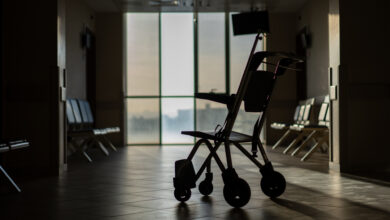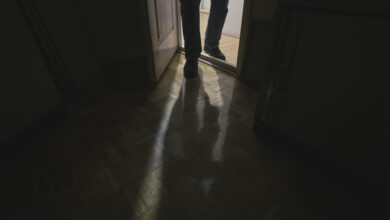The great untold story
Australia’s chief nurses should call for history to be introduced into all nursing curricula, a leading historian on World War I nursing has said.
Dr Kirsty Harris, from the school of historical studies at the University of Melbourne, said the profession needed high-level advocates to raise the prominence and status of nursing history in both education and research.
She said the collective voice of Australia’s nursing leaders could create the momentum for nursing history to gain a stronger foothold in the undergraduate nursing curriculum and in Australia’s research agenda.
“Knowing the history of what has gone on before helps nurses to see their profession in a new light,” Harris told Nursing Review ahead of her public lecture on nursing practice in WWI to be held next month.
But she said a significant problem in nursing history in Australia was that much of it remained undocumented. This was despite the size and dominance of nursing in women’s employment and social history. For example, while researching the role of Australian nurses in WWI she discovered that many country matrons had been trained to give anaesthetics in the absence of a remote doctor, and yet this work had never been recorded in any official history of anaesthetics in Australia.
Harris said nursing history in Australia has only recently come to the fore.
“Women’s history only received attention and recognition from the 1970s when the feminist movement forced the academic world to pay attention to women’s history. Since that time we have seen the evolution of hospital nursing histories and smaller state-based histories,” said Harris. She said a deeper focus on history in nursing education would also help to encourage nurses to become record keepers of nursing history in the future.
An idea Harris would like to see realised is for International Nurses Day to also become a day of historical record.
“In a world where people don’t keep diaries or send letters, where is the next generation of nursing historians going to get their material from? It would be great if on International Nurses Day every nurse around the world could record in whatever manner – either electronically, on piece of paper or orally what they did on that day.”
A study led by Dr Kylie Smith from the University of Wollongong is currently examining the barriers to the inclusion of history into academic nursing and some strategies to overcome this situation. In More than Bombs and Bandages a book based on her prize-winning PhD thesis, Harris sought to correct the misconception that nursing in WWI was simply routine. The phrase “routine nursing” had been used by the official medical historian, A.G Butler, in WWI to describe nursing practice in Australian hospitals in France.
Instead, Harris found that for the 2500 nurses who served with the Australian Army Nursing Service (AANS), the WWI was an incubator for nursing activity, invention and creativity. During a time of medical emergency and a shortage of medical doctors, nurses crossed boundaries and performed a range of new roles. They took on many doctors’ roles: acting as assistant surgeons, removing bullets and stitching wounds; some received training in anaesthetics and gave chloroform or ether; while others dispensed drugs.
Nurses managed men for the first time and variously worked as ambulance officers, carried out administrative positions and filled the position of a “home sister”, where they were responsible for the food and accommodation of up to 200 nurses.
In hospital ships off Gallipoli, Australian nurses administered morphine without requiring the constant supervision of a doctor due to medical staff shortages, said Harris. These roles were spontaneous and borne out of urgency and necessity. “In war-time situations professional boundaries become blurred and the goal posts moved,” she said.
WWI was also one of the first examples of transcultural nursing.
Australian army nurses had a much greater transnational experience than their fellow Australian male soldiers, having served in Greece, India and German East Africa. They also served outside of their Australian unit with the British Army nursing service.
While attention has primarily focused on nurses who served with the AANS, an additional 800-1000 Australians, often living abroad, are believed to have served with other organisations such as the Red Cross. Harris said her book captures the adaptability and resourcefulness of nurses – many Australian nurses who served in the military had run their own small private hospital in Australia.
However, what is less clear is whether army nurses kept these roles once they returned to Australia after the war. Harris said historians are yet to document the immediate and long-term impact of the war on nursing in Australia.
While some argue the war marked the birth of professional nursing in Australia through new leadership roles for many returning nurses, others say the professional gains during wartime were quickly lost and nurses once again filled a subordinate role to doctors.
After the war, tensions arose over professional and industrial issues, said Harris. In Victoria, an attempt to unionise through the establishment of the Trained Nurses Guild failed due to a lack of support from the broader nursing community. “There was this idea that nursing was a vocation and you weren’t a real nurse if you wanted to fight for pay and conditions.”
The Spanish flu pandemic
As more and more bugs become resistant to antibiotics, Harris says it is useful to understand the history of nursing practice prior to the advent of antibiotics.
Her current research interests include the Spanish flu pandemic, which killed millions around the world at the end of WWI, and involved many military nurses.
To date, the emphasis of historical research has been on the role of doctors during this pandemic rather than the involvement of nurses. Harris intends to correct this imbalance by looking at the role of nurses posted to quarantine stations around Australia.
“In an age without antibiotics it was left to good nursing care to try to heal a patient. I want to remind people of nursing practices that were used, and people can still use, to help people recover when they don’t have access to drugs, as is the case in some developing countries today.”
Anzac centenary
Libraries and museums around Australia are planning exhibitions in 2015 for the Anzac centenary, which will include World War I nurses. They are looking for any diaries or memorabilia of Australian war nurses held by family members who might be happy to lend them for display. Please contact Kirsty Harris at [email protected] if you can assist.
Dr Kirsty Harris will give a public talk on WWI nursing at Mosman Library in Sydney on Wednesday, September 19.
Email: [email protected]





